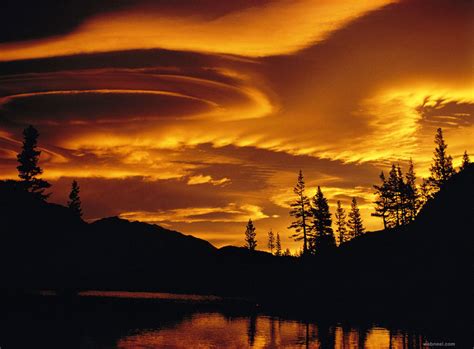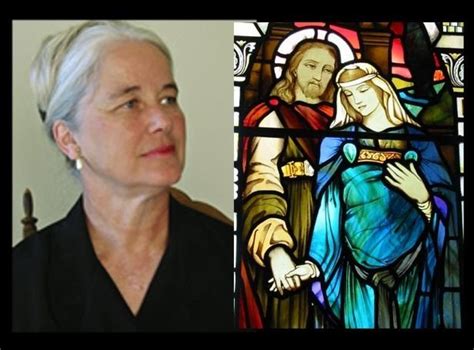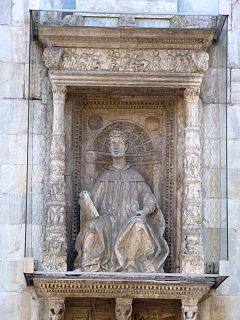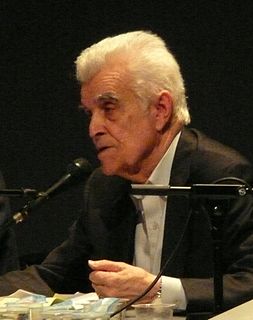A Quote by Galen Rowell
At the heart of all photography is an urge to express our deepest personal feelings - to reveal our inner, hidden selves, to unlock the artist. Those of us who become photographers are never satisfied with just looking at someone else's expression of something that is dear to us. We must produce our own images, instead of buying postcards and photo books. We seek to make our own statements of individuality.
Quote Topics
Artist
Become
Books
Buying
Dear
Deepest
Else
Express
Expression
Feelings
Heart
Hidden
Images
Individuality
Inner
Instead
Just
Just Looking
Looking
Make
Must
Never
Our
Own
Personal
Personal Feelings
Photo
Photographers
Photography
Postcards
Produce
Reveal
Satisfied
Seek
Selves
Someone
Something
Statements
Those
Unlock
Urge
Us
Related Quotes
To be true to ourselves, however, is not an easy task. We must break free of the seductions of society and live life on our own terms, under our own values and aligned with our original dreams. We must tap our hidden selves; explore the deep-seated, unseen hopes, desires, strengths and weaknesses that make us who we are. We must understand where we have been and where we are going.
At every stage of life, our inner self requires the nurturance of loving people attuned to our feelings and responsive to our needs who can foster our inner resources of personal power, lovability, and serenity. Those who love us understand us and are available to us with an attention, appreciation, acceptance, and affection we can feel. They make room for us to be who we are.
The mystery of the spiritual life is that Jesus desires to meet us in the seclusion of our own heart, to make his love known to us there, to free us from our fears, and to make our own deepest self known to us Each time you let the love of God penetrate deeper into your heart it leads to a love of ourselves that enables us to give whole-hearted love to our fellow human beings. In the seclusion of our hearts we learn to know the hidden presence of God; and with that spiritual knowledge we can lead a loving life.
We were wise indeed, could we discern truly the signs of our own time; and by knowledge of its wants and advantages, wisely adjust our own position in it. Let us, instead of gazing idly into the obscure distance, look calmly around us, for a little, on the perplexed scene where we stand. Perhaps, on a more serious inspection, something of its perplexity will disappear, some of its distinctive characters and deeper tendencies more clearly reveal themselves; whereby our own relations to it, our own true aims and endeavors in it, may also become clearer.
In vain do we seek tranquility in the desert; temptations are always with us; our passions, represented by the demons, never let us alone: those monsters created by the heart, those illusions produced by the mind, those vain specters that are our errors and our lies always appear before us to seduce us; they attack us even in our fasting or our mortifications, in other words, in our very strength.
how wearisom Eternity so spent in worship paid To whom we hate. Let us not then pursue By force impossible, by leave obtain'd Unacceptable, though in Heav'n, our state Of splendid vassalage, but rather seek Our own good from our selves, and from our own Live to our selves, though in this vast recess, Free, and to none accountable, preferring Hard liberty before the easie yoke Of servile Pomp
It is possible to be honest every day. It is possible to live so that others can trust us-can trust our words, our motives, and our actions. Our examples are vital to those who sit at our feet as well as those who watch from a distance. Our own constant self-improvement will become as a polar star to those within our individual spheres of influence. They will remember longer what they saw in us than what they heard from us. Our attitude, our point of view, can make a tremendous difference.
The Louvre is the book in which we learn to read. We must not, however, be satisfied with retaining the beautiful formulas of our illustrious predecessors. Let us go forth to study beautiful nature, let us try to free our mids from them, let us strive to express ourselves according to our personal temperaments. Time and reflection, moreover, little by little modify our vision, and at last comprehension comes to us.
For some of us, the soul is resident in the sole, and yearns ceaselessly for light and air and self-expression. Our feet are our very selves. The touch of floor or carpet, grass or mud or asphalt, speaks to us loud and clear from the foot, that scorned and lowly organ as dear to us as our eyes and ears.
Instead of working for white man and helping him hold up a government that continues to suppress us socially and, and exploit us economically and oppress us politically, let us go and enter our own territory and use our own talents to uplift ourselves by our own bootstraps. And then he will recognize us for what we are.




































